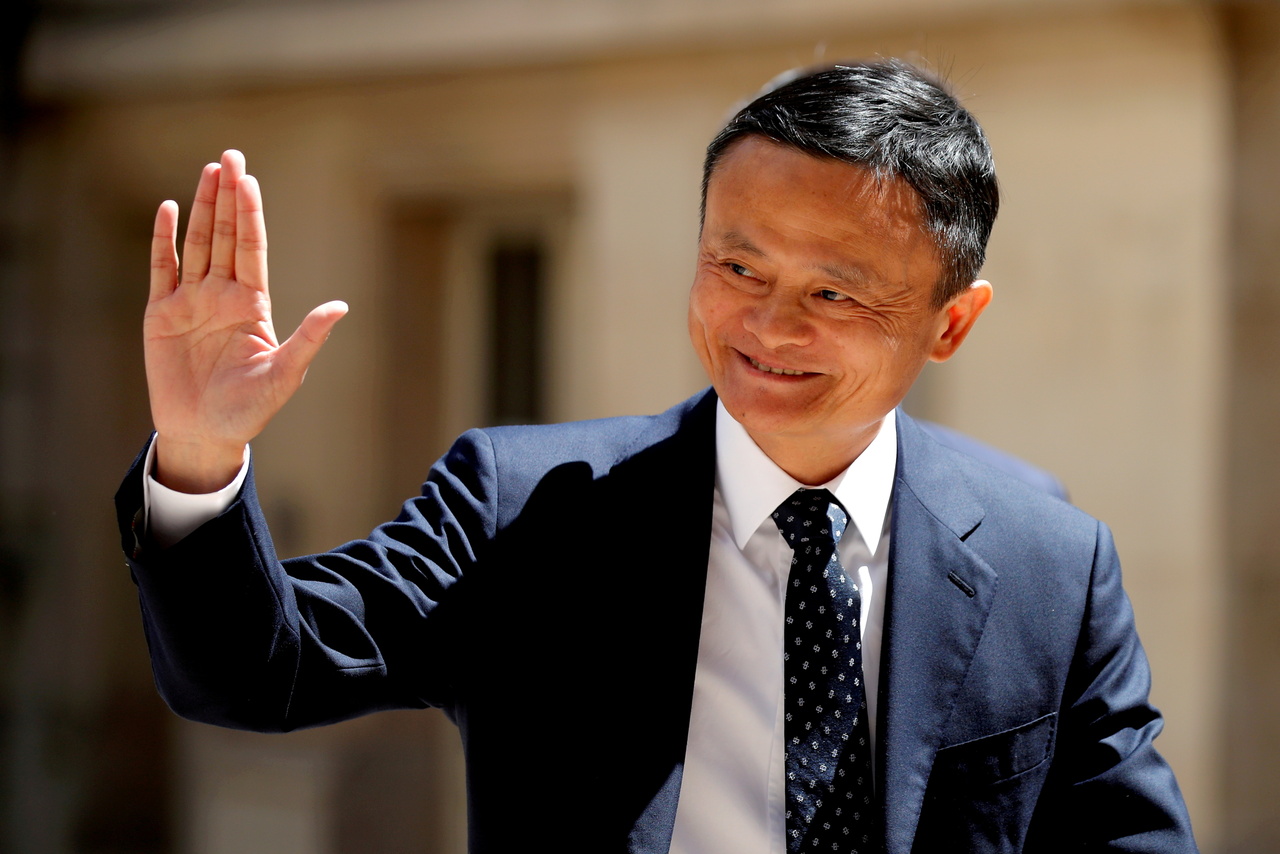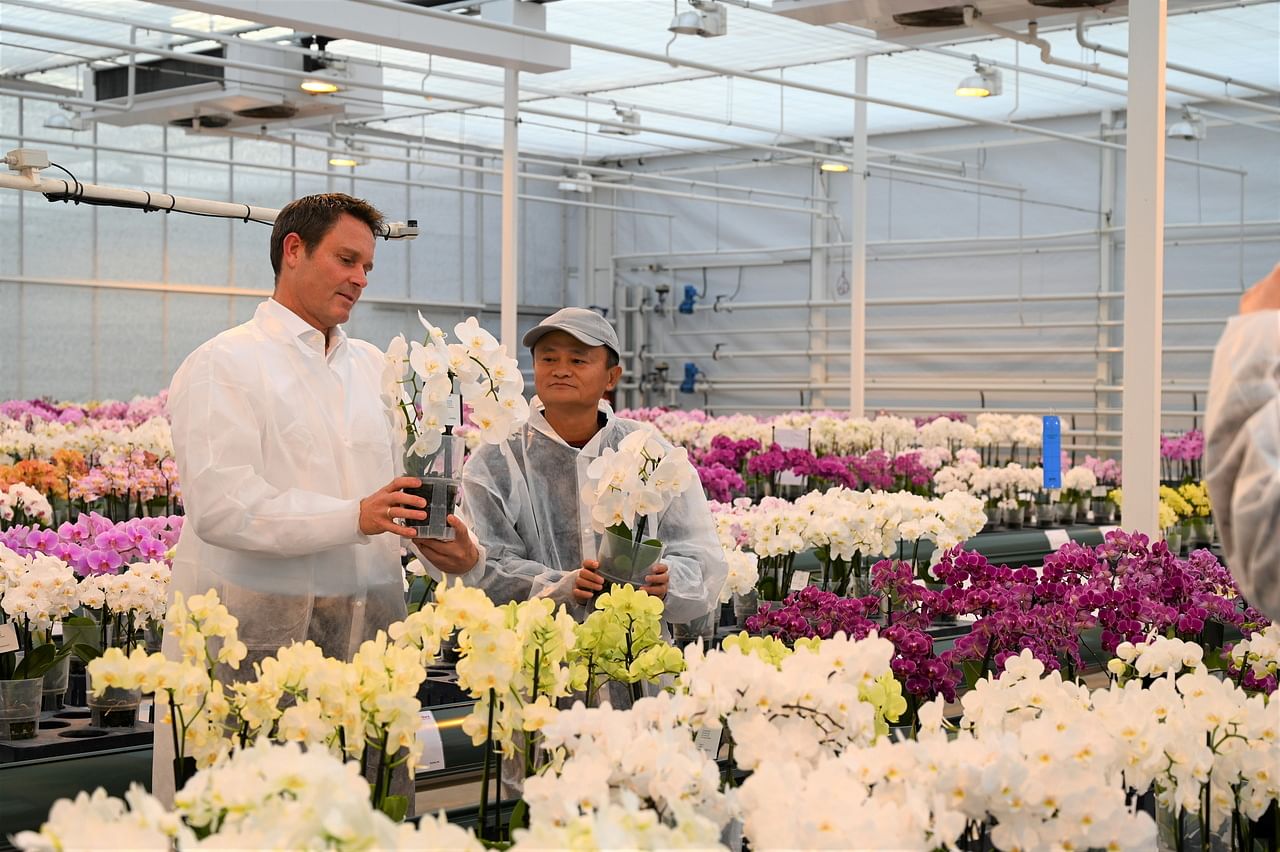Commentary
From e-commerce to e-farmer? Jack Ma starts digging for China
Sign up now: Get insights on Asia's fast-moving developments

Alibaba founder Jack Ma seems to be switching focus from the virtual online world to farming.
PHOTO: REUTERS
BEIJING (THINK CHINA) - E-commerce titan, Internet technology mogul, business magnate - these are all labels that have been used on Alibaba founder Jack Ma. But in the past few months, these labels seem to be gradually fading as Mr Ma appears to be switching focus from the virtual online world to farming.
After Mr Ma criticised China's regulatory framework at the Bund Summit in Shanghai in October last year, his business empire quickly came under close inspection by the regulators, and the US$37 billion (S$50 billion) initial public offering of Ant Group, an affiliate firm of Alibaba, was halted.
For a while, the usually high-profile Mr Ma faded from the public eye, and some people even speculated that he had been "hidden". But in mid-January, after "disappearing" for over two months, Mr Ma finally reappeared in public for a good cause, giving a video speech to 100 rural Chinese teachers.
He said: "During this period, my colleagues and I have been studying and thinking, and we have even more strongly devoted ourselves to the idea of educational philanthropy. Not just because I was a teacher, but more importantly, because education matters, particularly rural education.
"Today, China has eradicated poverty and is pushing its rural redevelopment strategy, and entering a new phase of common prosperity. Supporting and serving rural teachers and complementing the education ministry in developing rural education, and working towards rejuvenating the villages and achieving common prosperity - I think this is the responsibility and duty of this generation of business owners."
Analysts feel Mr Ma's reappearance shows that he will focus more on philanthropy, and that he supports the official direction and current themes of eradicating poverty, rejuvenating rural areas and common prosperity.
Meanwhile, Mr Ma has been making some big moves, the first being a visit to an agricultural set-up in Pinghu city in Jiaxing, Zhejiang province, on Sept 1.
The day after Mr Ma's reappearance, Alibaba unveiled its "10 moves towards common prosperity", pledging 100 billion yuan (S$20.8 billion) by 2025 towards the vision of common prosperity, including more investments in technology and farming industrialisation. These moves seemed to be strongly aligned with the official theme.
Then on Oct 19, the South China Morning Post under Alibaba reported that Mr Ma was in Spain for an agriculture and technology study tour related to environmental issues, the first time he was out of China since October last year.
A week later, the newspaper quoted informed sources as saying Mr Ma was visiting research institutions in the Netherlands to study the technology of agriculture.
These sources said Mr Ma would continue travelling in Europe to visit more companies and research institutions involved in agricultural infrastructure, plant breeding, and the training of expertise in the field. They also said he believed that a combination of the technology with Alibaba's cloud computing, big data analysis and artificial intelligence would create tremendous potential for the modernisation of agriculture in China.
Putting all these together, it is easy to deduce that Mr Ma's next career objective will be in farming - in fact, he had previously shown an interest in the field.
He had said at the 2019 World Economic Forum in Davos that if he could start a new business, it would be farming.
At an Alibaba conference on poverty alleviation that same year, Mr Ma said that in the past, farmers faced the soil with their backs towards the sky, but in the future, farmers would be facing screens and backed up by calculations and algorithms; they would depend on data for their livelihood, and make assessments and decisions based on big data.

<p>Jack Ma, Alibaba Group founder, visits a Dutch flower grower Anthura in the town of Bleiswijk, Netherlands October 25, 2021 in this handout picture obtained on October 28, 2021. Anthura/Handout via REUTERS ATTENTION EDITORS - THIS IMAGE HAS BEEN SUPPLIED BY A THIRD PARTY.</p>
PHOTO: X80001
He also said the previous generation of farmers left their homes to be migrant workers in cities, but farmers today can work in agriculture and forestry without having to leave their land. "We are not just helping farmers increase their crops, but also helping them to change how they do it," he said.
Put simply, Mr Ma hopes farmers can use technology to end their reliance on traditional farming methods to increase their income.
Besides Mr Ma, several tech tycoons in China are also going back to the land.
The speech by Tencent CEO Ma Huateng at this year's "Two Sessions" parliamentary meetings was to encourage the integration of Internet technology and smart farming, and the nurturing of new-age farmers. Also, Mr William Ding of NetEase went into rearing pigs back in 2009.
In August last year, Chinese President Xi Jinping gave a warning about food security, saying that while the country's food production had been doing well for many years, there had to be a sense of crisis about food security.
In April, for the first time, food production capability was made a key security indicator in China's 14th Five-Year Plan (2021-2025).
Based on its population of 1.4 billion people, China is the world's largest food consumer, even as it is also the world's largest food producer. Statistics from last year show China's current proportion of food imports to be about 20 per cent. With the China-US conflict still unresolved, there are worries that once the external situation worsens, Chinese tummies might be the first to get blocked off.
Besides, the Covid-19 pandemic is still raging globally, and with the floods in July in Henan (known as China's granary), food production has been put under pressure.
So, if China's private firms that hold the technology and the funds actively invest in the agricultural sector, to some extent that would ease the risks in the country's food security. While this will not happen overnight, the authorities will likely be happy to see it happen.
Now that the Chinese authorities are making common prosperity a priority as never before, for a tycoon under "added surveillance" like Mr Ma to talk about modernising agriculture and rejuvenating rural areas is probably the most politically correct thing in the eyes of the Communist Party of China - which had its beginnings in farming villages and with farmers.
- This commentary first appeared in thinkchina.sg, an English-language e-magazine by Lianhe Zaobao.


